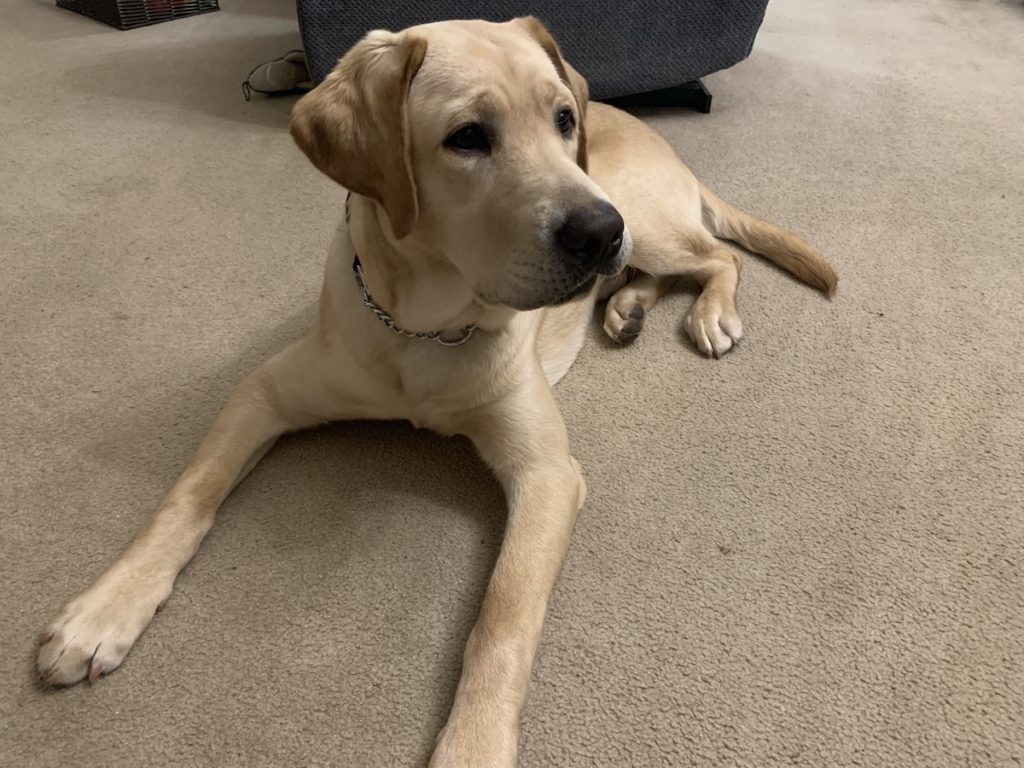
Numbers 13
Numbers 13:6, Caleb the son of Jephunneh.
Caleb—A Man Full of Love for YHVH and His People

Although Caleb is listed here as being from the tribe of Judah, he nevertheless was of Canaanite heritage having become part of Judah when the Israelites conquered the land of Caleb’s ancestors.
Elsewhere, the Torah lists Caleb as the son of Jephunneh, the Kenizzite (Num 32:12, also Josh 14:6, 14). Who were the Kenizzites (also Kenezite)? They were among the original inhabitants of Canaan (Gen 15:19), that Israel eventually dispossessed when taking the Promised Land. This people originated from Eliphaz, the oldest son of Esau. Thus, Caleb was an Edomite who accepted the Elohim of Israel and became grafted into the tribe of Judah (Josh 15:13). Throughout the Tanakh, Edom (a nickname for Esau) remains a sworn enemy of Israel maintaining a perpetual hatred for YHVH’s people and constantly covetous of their land even into modern times. In fact, the case could be made that the modern day Palestinians, if not descendants of Edom, at least manifest the same hatred for Israel as did the ancient Edomites. It is out of this people that Caleb comes.
The Hebrew name Caleb literally means “dog,” although it can have the favorable connotation of faithful, loving and tenacious like a dog. Some Bible students have noted that the Hebrew name Caleb or Kalev can also mean “all heart” since this name is comprised of two Hebrew word: kol meaning “all” and lev meaning “heart.” Indeed, in his life, Caleb exemplified his name’s meaning in his faithfulness to the Elohim of Israel, in his faith and tenacious zeal to go up and to conquer the Promised Land as YHVH commanded as well as his love for YHVH, YHVH’s people, YHVH’s Torah and the land of Israel.
Evidently Caleb defected from his own tribal peoples and joined the Israelites, while they were wandering in wilderness and before they came up to take the Promised Land. This speaks volumes about Caleb’s character in that he was willing to forsake his pagan heritage and align himself with the Elohim and people of Israel years before they actually dispossessed his people of their ancestral land. Caleb remained aligned with those who took that land and killed his heathen family.
Indeed, Caleb was a unique individual in that he chose a spiritual path less traveled and one that was unpopular, and he clung ardently to that path despite, at times, vicious opposition. The Torah records that he had a different spirit and that he fully followed Elohim (Num 14:24). For this, YHVH promised him an inheritance in the Promised Land (ibid.). May we be like Caleb!
Numbers 13:16, Moses called Hoshea the son of Nun Yehoshua.Prior to sending the spies forth, Moses renames his assistant Hoshea(whose name means “salvation”) to Yehoshua(or Joshua,meaning “Yah [short for Yehovah] Saves”) by adding the Hebrew letter yud /H to Hoshea’s name so that his name would now begin with the first letter of YHVH’s name—the English letter “Y”. What was the prophetic significance of this name change? Who is it that will lead us into our spiritual Promised Land or our spiritual and eternal rest? (See Heb 4:8 and 11, especially verse 8, where the author shows that Yehoshua was the foreshadow of Yeshua.) Do you possess a vibrant and active faith in Yeshua? Is he the Chief Cornerstone of your spiritual house, the Author and Finisher of your faith and the Captain of your salvation to lead you into the spiritual rest of his eternal kingdom? Are you faithfully following him as the Israelites followed Yehoshua/Joshua into the Promised Land?
Numbers 13:32, It is a land which devours its inhabitants.The Jewish commentators in The ArtScroll Stone Edition Chumash cogently observe, “Such misinterpretations are typical of people who choose not to have faith. Invariably they interpret events in a way that will conform to their own notions” (p. 803). Having faith in YHVH is a conscious choice that one has to make. Faith does not come automatically. Fear, doubt and unbelief do, however, and are part of the fallen nature or evil inclination that all men possess.
Paul talks about leaving behind the fallen, faithless, sin-bent nature (Rom 7) and moving into a walk of faith in the Spirit of Elohim when in Romans 8:1–2 he contrasts the “law of sin and death” with “the law of the Spirit of life in Messiah Yeshua.” Through Yeshua we become more than conquerors (Rom 8:37). Moreover, 1 John 5:4 tells us, “For whatever is born of Elohim overcomes the world, and this is the victory that overcomes the world, even our faith[i.e. faith in Yeshua who is the Author and Finisher of our faith, the One who gives us the gift of faith, the One in whom we have faith, and on whose words and promises believers stand firm and secure as a house built on a rock].”
The fear of death is the mother of all fears and is what plagued the disbelieving Israelites. Through identification with Yeshua’s death, burial and resurrection at baptism (Rom 6:3–6) we too (through Yeshua) can be victorious over the sting of death and the grave, which is the death sentence upon all Torah-lawbreaking mortals (read 1 Cor 15:47–58 and rejoice!).
Numbers 14
Numbers 14:20–24, I have pardoned.YHVH’s general pardon versus salvational pardon of sin. This Bible passages teaches us that there is a general pardon of sin of which all humans are the recipient, and a salvational pardon of sin that only a few receive.
YHVH pardoned Israel for the sin of disobedient unbelief, but forgiveness in this case only meant that YHVH’s judgment would not come upon them for this particular sin. This pardon did not expiate them of all their sin resulting in eternal life of which entering into the Promised Land was a prophetic antetype.
This is the same genre of pardon that YHVH extended to Adam and Eve after they sinned by eating of the forbidden fruit. They did not die immediately, but were able to live out their lives under that pardon, but it did not guarantee them eternal life.
Later we read that in verse 23 that YHVH would not allow this unbelieving generation of Israelites to see the Promised Land because they had rejected Elohim and refused to obey him. This was in contradistinction to Joshua and Caleb who had a different spirit in them and fully obeyed YHVH (v. 24).

What can we learn from this? In general sense, YHVH pardons all humans for the sins they commit. If he did not, his judgment would come upon them immediately, for the wages of sin is death, and they would be no more. But humans keep sinning, rejecting Elohim, and yet he graciously, in most cases, allows them to live out their physical lives, but this does not mean that they will have eternal life. This is YHVH pardoning them momentarily, but not saving them or granting them eternal life.
Only those, like Caleb and Joshua, who have a different spirit (i.e. the Holy Spirit) and a personal spirit or heart that is inclined to fully obey him will be rewarded with eternal life in the Promised Land of YHVH’s eternal kingdom.
Numbers 14:22, Have tempted me now these ten times. Israel, while in the wilderness, tested YHVH ten times and refused to heed his voice. According to the Jewish sages, these ten times were: Exodus 14:11; 15:24; 16:3; 16:20; 16:27; 17:2; 32:4; Numbers 11:1; 11:4; and here (i.e. believing the spies’ evil report). Look at each of these incidents where Israel “tested” YHVH and preferred to walk in doubt and unbelief rather than to trust YHVH’s Word. These are examples for us to learn from (1 Cor 10:11). Be blatantly honest with yourself: how many times have you tested your Heavenly Father in the same areas Israel did?
Numbers 14:40–45, We…will go up. Here we see the Israelites preparing to go and to possess Canaan in their own strength and against the will of YHVH. Where did this carnally-driven endeavor lead them?
Matthew Henry discusses how this act demonstrates how the carnal mind is enmity against YHVH (Rom 8:7), for when he bade them to go, they would not, and when he forbade the children of Israel from going, that is when they decided to go. They distrusted his strength, and trusted in their own. What was the result of their expedition? Failure!
Let us take warning from the fate of Israel, lest we perish after the same example of their unbelief. Let us go forth, depending on YHVH’s mercy, power, promise and truth. Do you think that the Israelites were rationally aware of what they were doing? We can easily look back in 20/20 hindsight and see the folly of their ways, but let us pray that YHVH gives us the discernment to see when each of us is guilty of the same in our own lives.
From Psalm 37,
Delight yourself also in YHVH, and He shall give you the desires of your heart. Commit your way to YHVH, trust also in Him, and He shall bring it to pass.…Rest in YHVH, and wait patiently for Him…The steps of a good man are ordered by YHVH, and He delights in his way.




